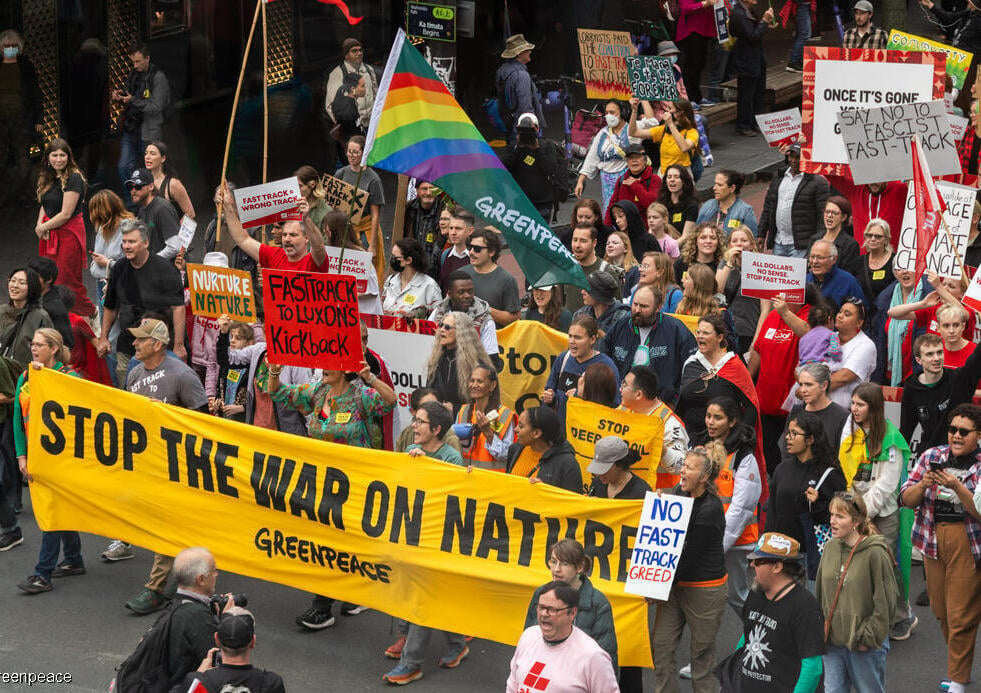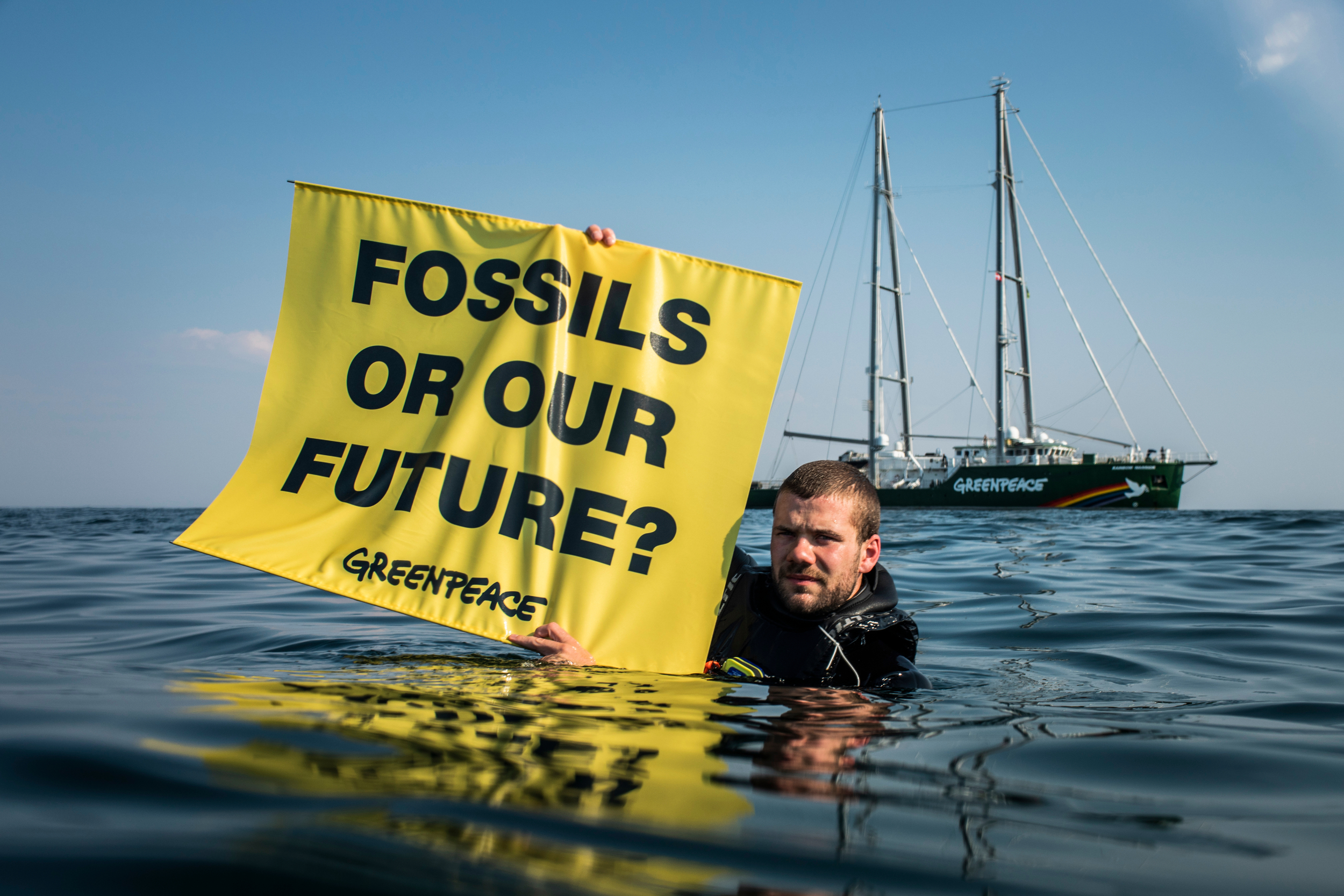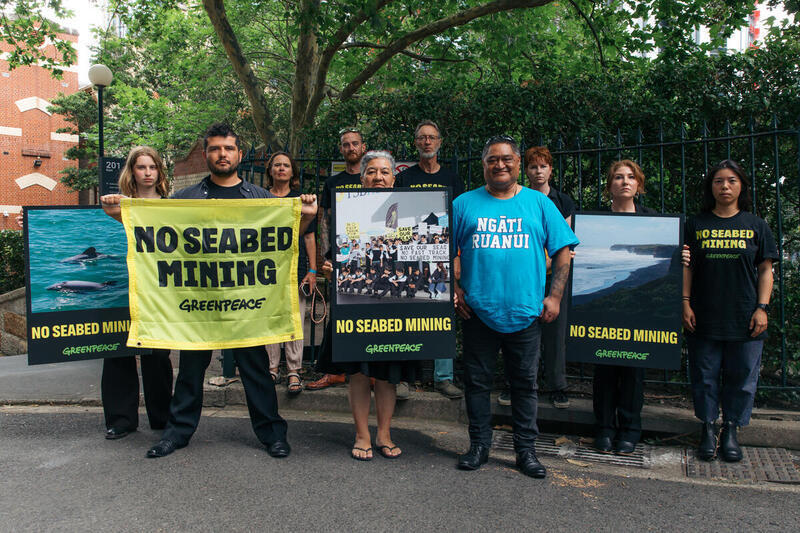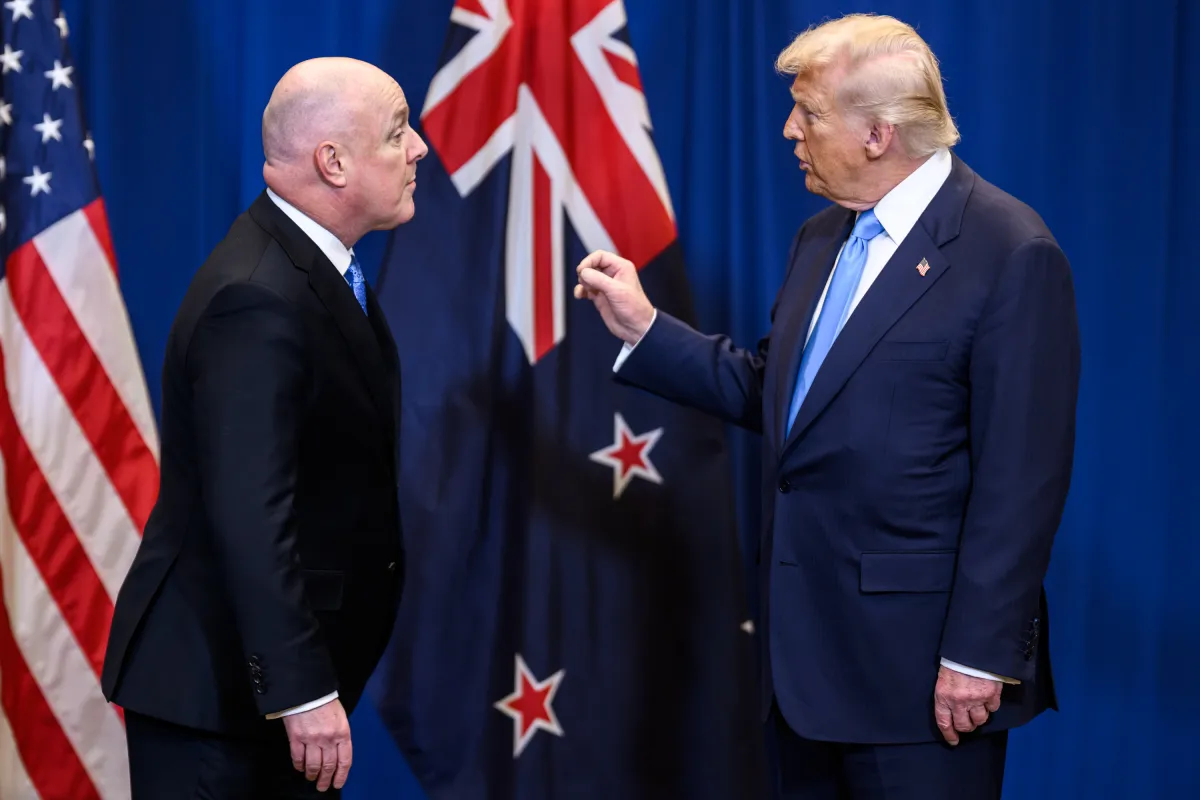LAST DAY FOR SUBMISSIONS – MONDAY 17 NOV AT 2PM. MAKE YOUR SUBMISSION NOW HERE.
Why you should make a submission
In a vicious escalation of the Government’s war on nature, the Government is proposing changes to the Fast Track Act that would make it even more dangerous and undemocratic.
The original Fast-Track Act, passed last year, was already the most brutal attack on nature and democracy in our lifetimes. It allows corporations to bypass New Zealand’s environmental laws to fast-track ecologically destructive projects like seabed mining, mega-dams, and mines on conservation land – with minimal public input.
But, when the Government first proposed the Fast Track Act, New Zealanders came together to defend nature with nearly 30,000 people submitting in opposition and tens of thousands taking to the streets in protest. That public pressure forced the Government to abandon some of its worst ideas, like giving just three Ministers unprecedented power to approve projects.
We made a difference and as a result decision making panels have rightly rejected damaging proposals like Te Kuha mine. Trans-Tasman Resources’ plan to mine the Taranaki seabed is on the ropes too. From Northland to Taranaki to Otago, communities across Aotearoa are rising up to defend nature from fast-track mines, waste incinerators, and other destructive developments.
The Government is now proposing changes to the Act that will remove what little environmental and democratic protections remain – This is a critical moment to take a stand.
Using your voice and making a submission against this escalation will show this Government, and all future governments, that New Zealanders will not accept this assault on our environment, Te Tiriti, or democracy.
Three ways to make your submission
- Head straight to the Government website. All you need to do is fill in the contact details they ask for, and then on the next page, make sure you clearly write your opposition:
- I oppose the Fast Track Amendment Bill. It should be thrown out immediately.
- Use our easy submission tool to create an personal submission.
- Want to say more in your submission? Great – read on to learn more about the Bill. We’ve also included key points you can copy and paste into your submission at the end of this guide.
What’s in the Amendment Bill?
The Bill makes the Fast-Track process even more dangerous. It is designed so that the Government’s corporate backers and profiteering mining corporations can get their ecologically reckless projects rammed through more easily, at speed. Here’s what it would do:
- Rush decision-making: Panels would be forced to approve or reject major projects within just 60 working days – no matter how complex or environmentally risky. This is an absurd and dangerous timeframe that undermines proper environmental assessment.
- Silence more voices: The public, environmental groups, and many hapū are already excluded from the Fast-Track process unless explicitly invited to comment and this Bill makes it even harder for panels to seek their input. It also further restricts the opportunity for civil society to appeal decisions in the high court – leaving fewer legal pathways to challenge even the most destructive projects.
- Gives Ministers more power to influence outcomes: Ministers would gain powers to issue “policy statements” promoting the supposed benefits of projects (like mining), and panels would be forced to consider them. It would also allow Ministers to meddle in the Environmental Protection Authority, undermining its independence.
- Let corporations influence panel decisions: Applicants would be allowed to object to panel members they dislike – and the panel convener would be required to consider their objections. No corporate applicant should have a say over who judges their project.
Or use our easy submission tool to create an personal submission.
Key statements you could include in your submission:
- I oppose this Bill in its entirety because it further weakens environmental protections and democratic safeguards. I urge the Select Committee to reject this Bill in its entirety and uphold environmental protection, democratic participation, and Te Tiriti o Waitangi.
- Decision-making must not be rushed. I oppose the requirement for panels to decide on a project within 60 working days. This timeline is unrealistic and dangerous. It will severely limit proper environmental assessment and due diligence, especially for high-risk projects like seabed mining and mega-dams. These are complex projects and panels need external input and longer timeframes to properly assess the proposals.
- Communities, hapū and NGOs must have a voice and appeal rights. I oppose further restrictions on who panels can invite to participate. The public, environmental experts, hapū, and NGOs must be able to speak to the impacts of these projects. And must also be able to appeal on points of law. Silencing these voices is anti-democratic.
- Ministers should not interfere further in the independence of the process: Ministers should not be able to issue political “policy statements” on the supposed benefits of projects or give general direction to the EPA in relation to the EPA’s performance and exercise of its functions, duties, and powers. This could weaken the EPA, reduce consideration of environmental protections and bias decision-making in favour of corporate applicants. It also undermines the independence of panels.
- Corporations must not influence panel makeup: Applicants should not be able to challenge or influence who sits on the expert panel. Panels must be independent, not shaped to suit corporate interests.
- Applicants should not be allowed to amend their applications, as this will actually increase confusion and lengthen processing times.
- If this bill is passed I strongly oppose its retrospective application to projects already in the process, these should follow the rules that were in place when they applied. Changing the rules mid-process is unfair and undemocratic.
- I oppose renaming Schedule 2 to “Listed Projects with significant regional or national benefits”. It is up to panels to determine whether a project has significant regional or national benefits.
- If this bill is passed, projects that have been previously refused under the Fast Track Act must be prohibited until they undergo a full new assessment (environmental, social, cultural) and full community input.
- If this bill is passed it must include strong sunset or review clauses. The proposed shortened timeframes will severely limit the ability for panels to properly assess environmental impacts. If harmful effects emerge, the Government must be required to review the project and have the power to cancel permits.
Join the campaign to stop fast tracked destruction
If you haven’t already, sign the open letter to industries urging them to opt out of the fast track process. By signing we’ll keep you up to date on the campaign to protect and strengthen New Zealand’s environmental protections.

Sign on to this open letter to industry now to help push more of them to opt out of the Fast Track.
Add my name



